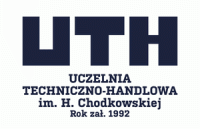A machine, receiving at distant times and from many hands new combinations and improvements, and becoming at last of signal benefit to mankind, may be compared to a rivulet, swelled in its course by tributary streams until it rolls along a majestic river, enriching in its progress provinces and kingdoms.
In retracing the current, too, from where it mingles with the ocean, the pretensions of even ample subsidiary streams are merged in our admiration of the master-flood. But, as we continue to ascend, those waters which, nearer the sea, would have been disregarded as unimportant, begin to rival in magnitude, and divide our attention with, the parent stream; until, at length, on our approaching the fountains of the river, it appears trickling from the rock, or oozing from among the flowers of the valley. So, also, in developing the rise of a machine, a coarse instrument or a toy may be recognized as the germ of that production of mechanical genius whose power and usefulness have stimulated our curiosity to mark its changes and to trace its origin. The same feelings of reverential gratitude which attached holiness to the spots whence mighty rivers sprung, also clothed with divinity, and raised altars in honor of the saw, the plough, the potter's wheel, and the loom.
Robert Stuart (1829) Historical and descriptive anecdotes of steam-engines, and of their inventors and improvers, Volume 1. Wightman and Cramp. p. 3-4.: As cited in Robert Henry Thurston "The Growth of the Steam-Engine I" in Popular Science Monthly Volume 12, November 1877. p. 15.
